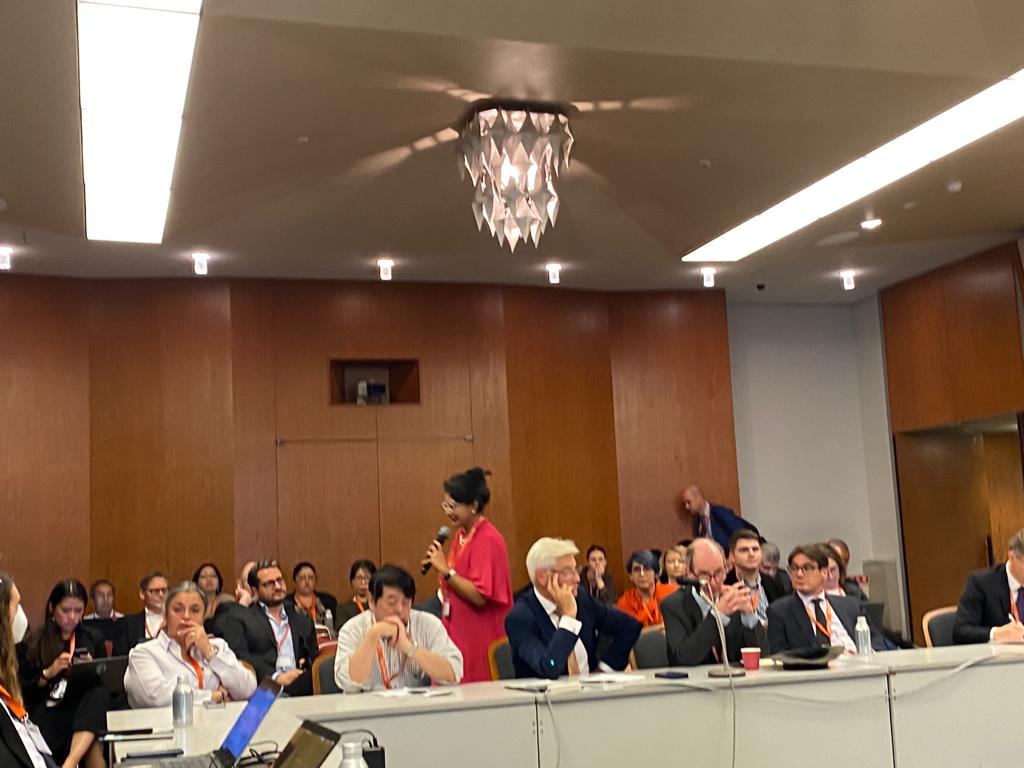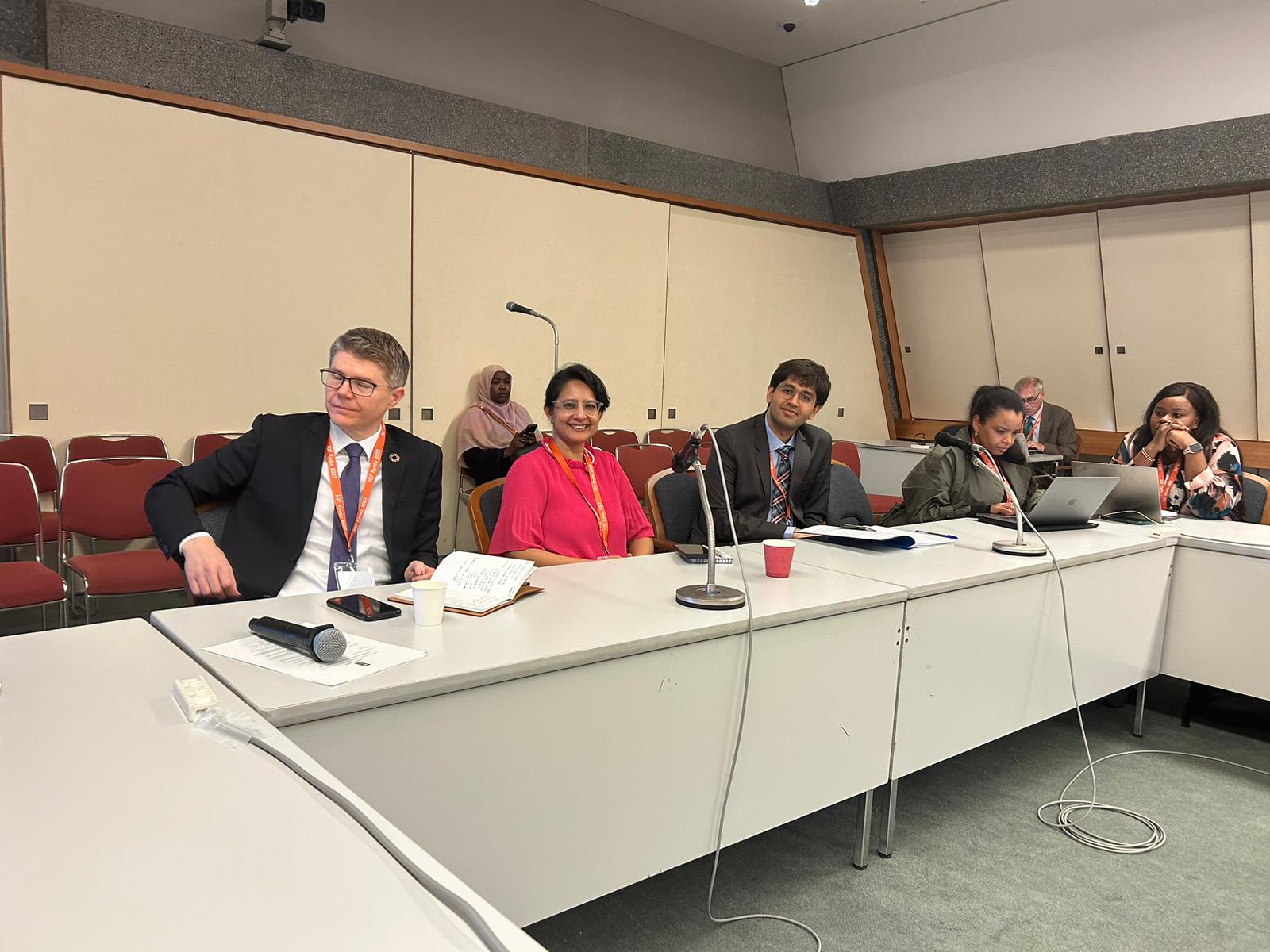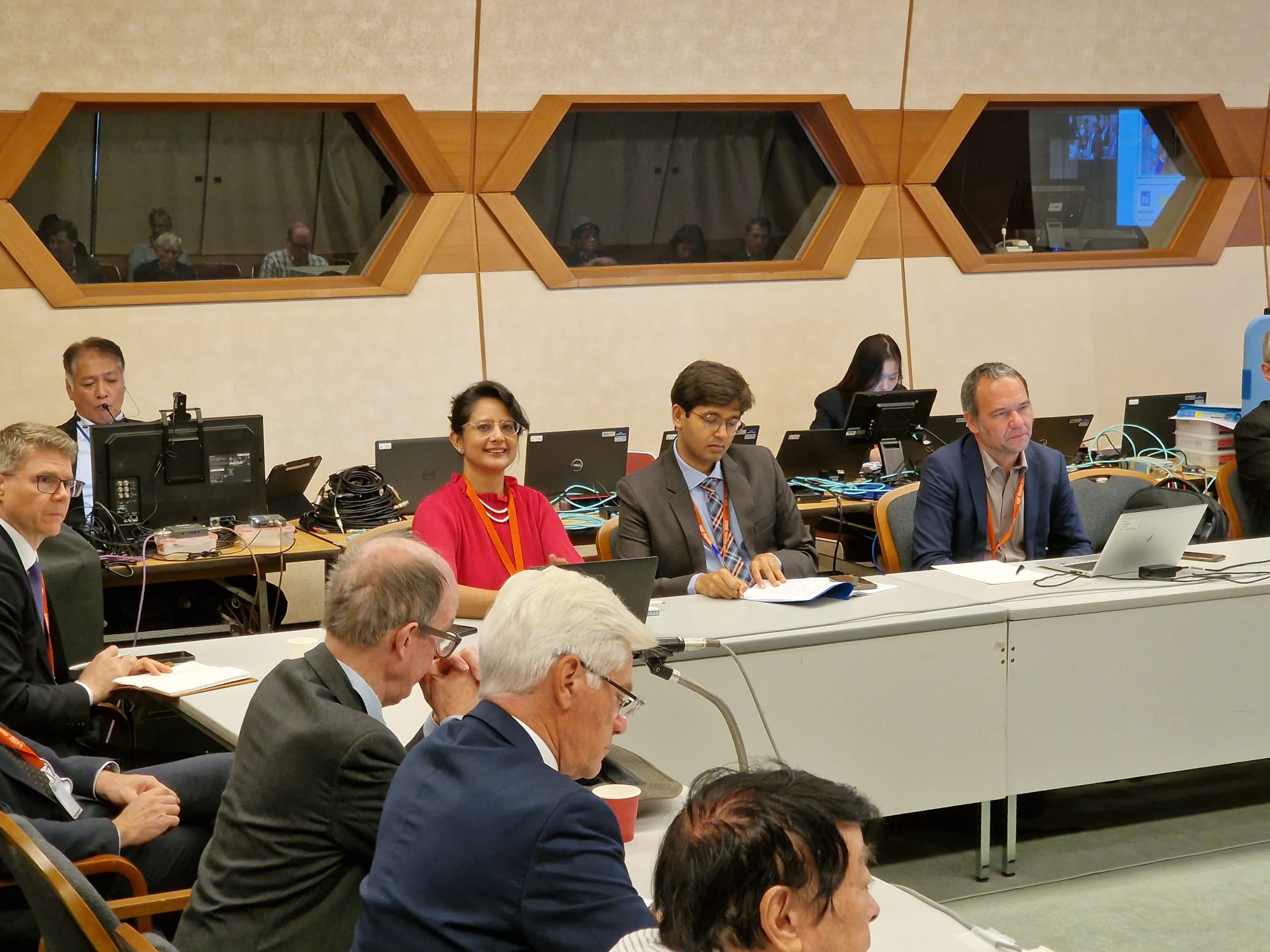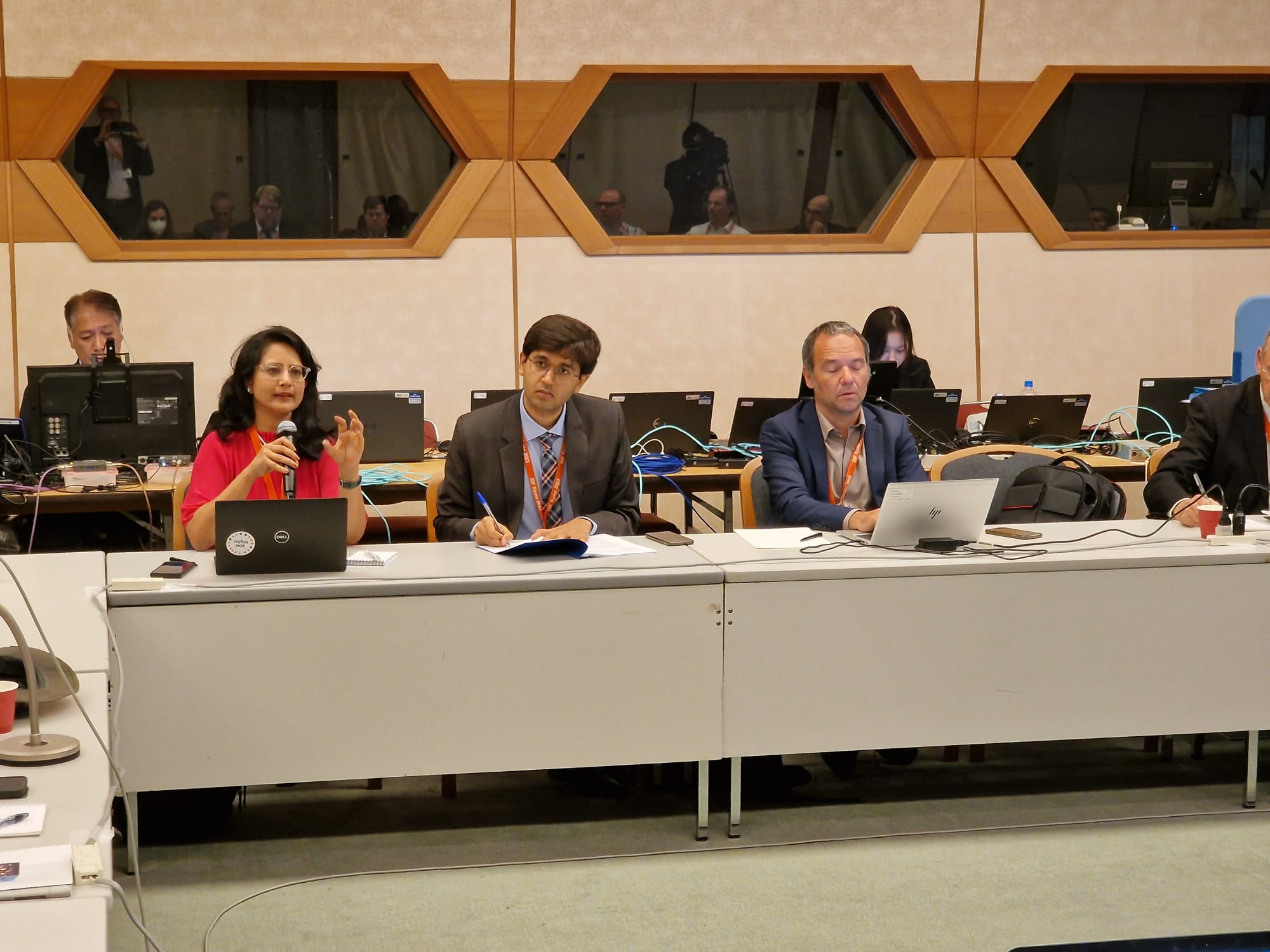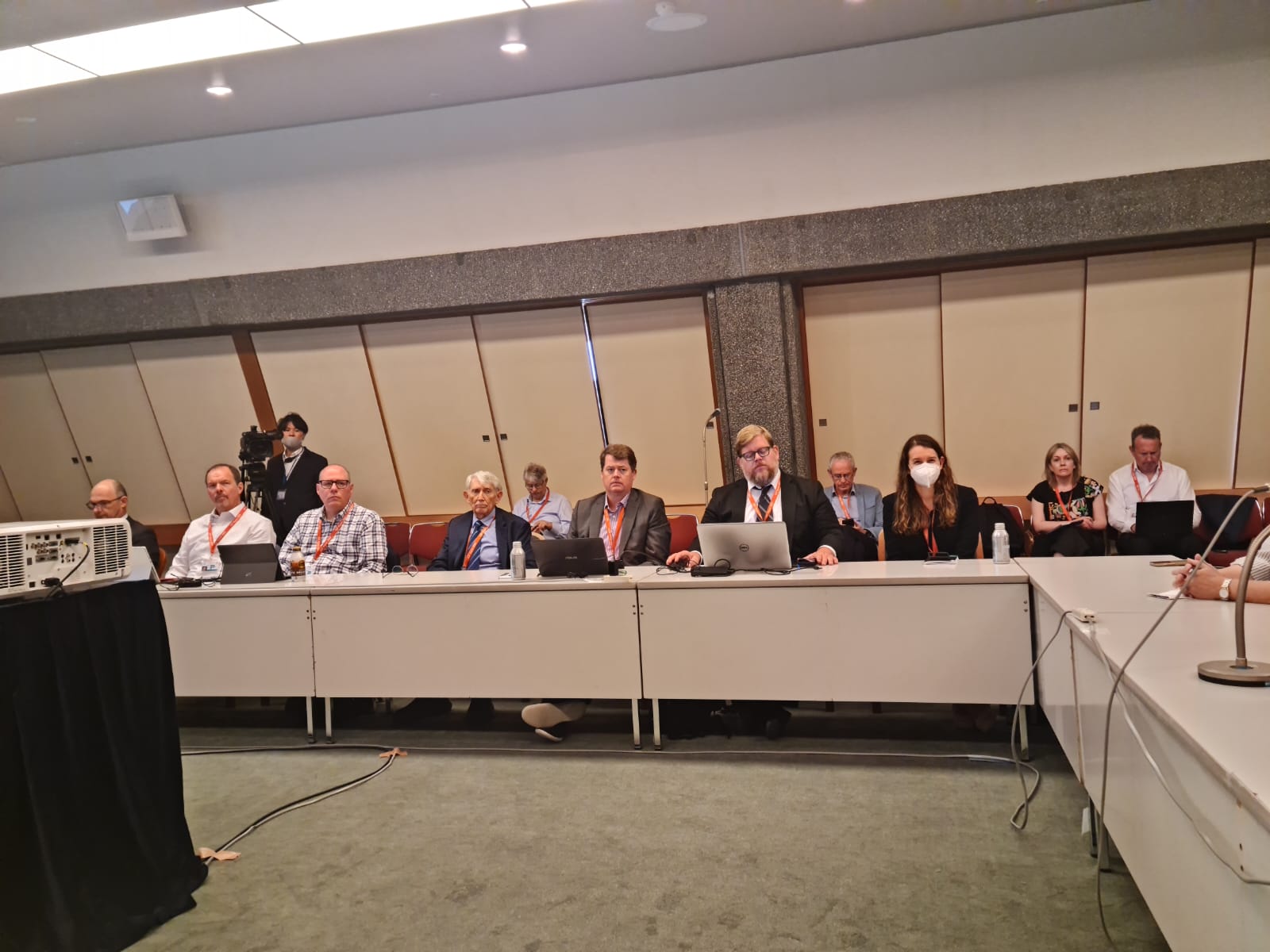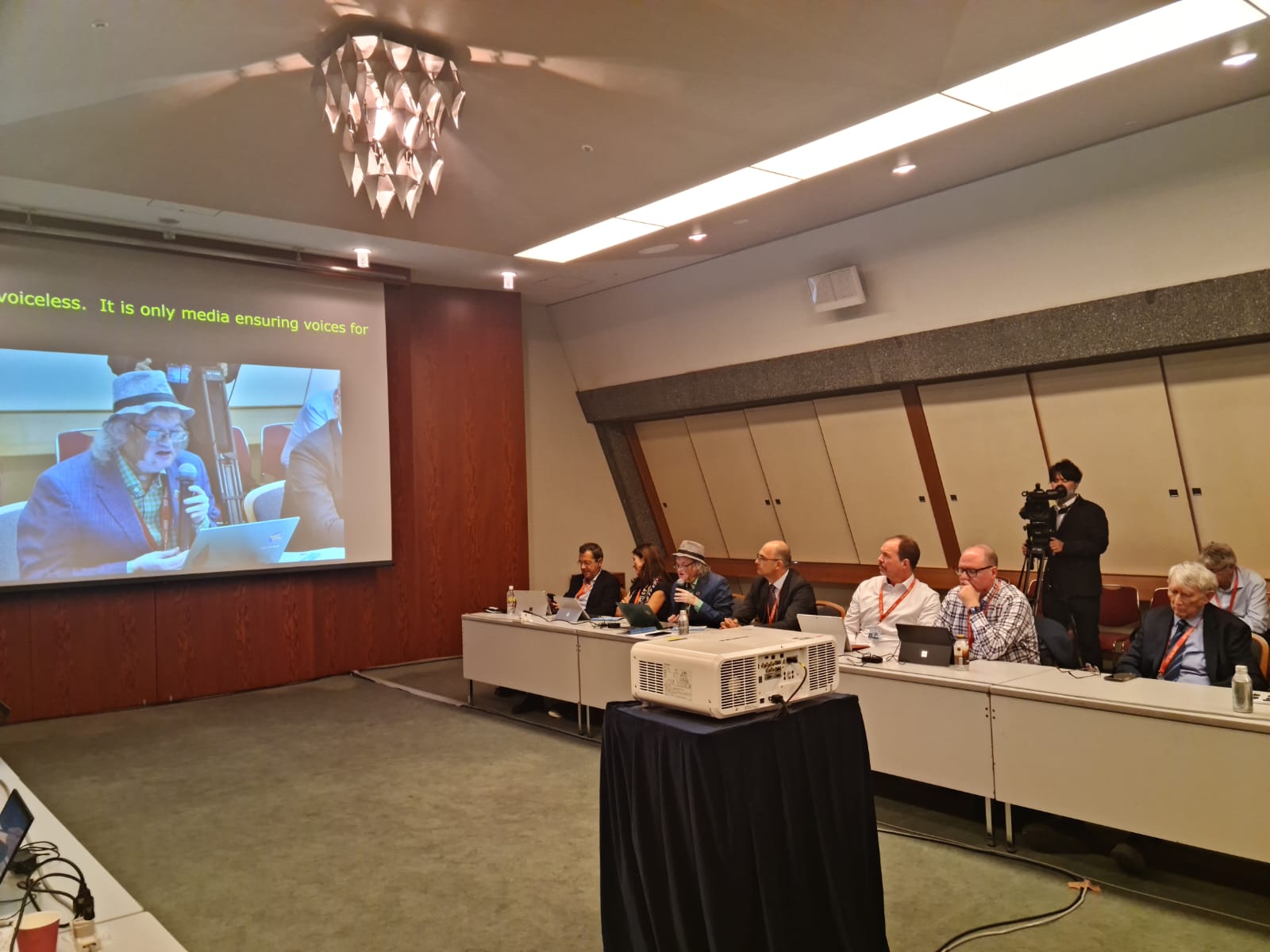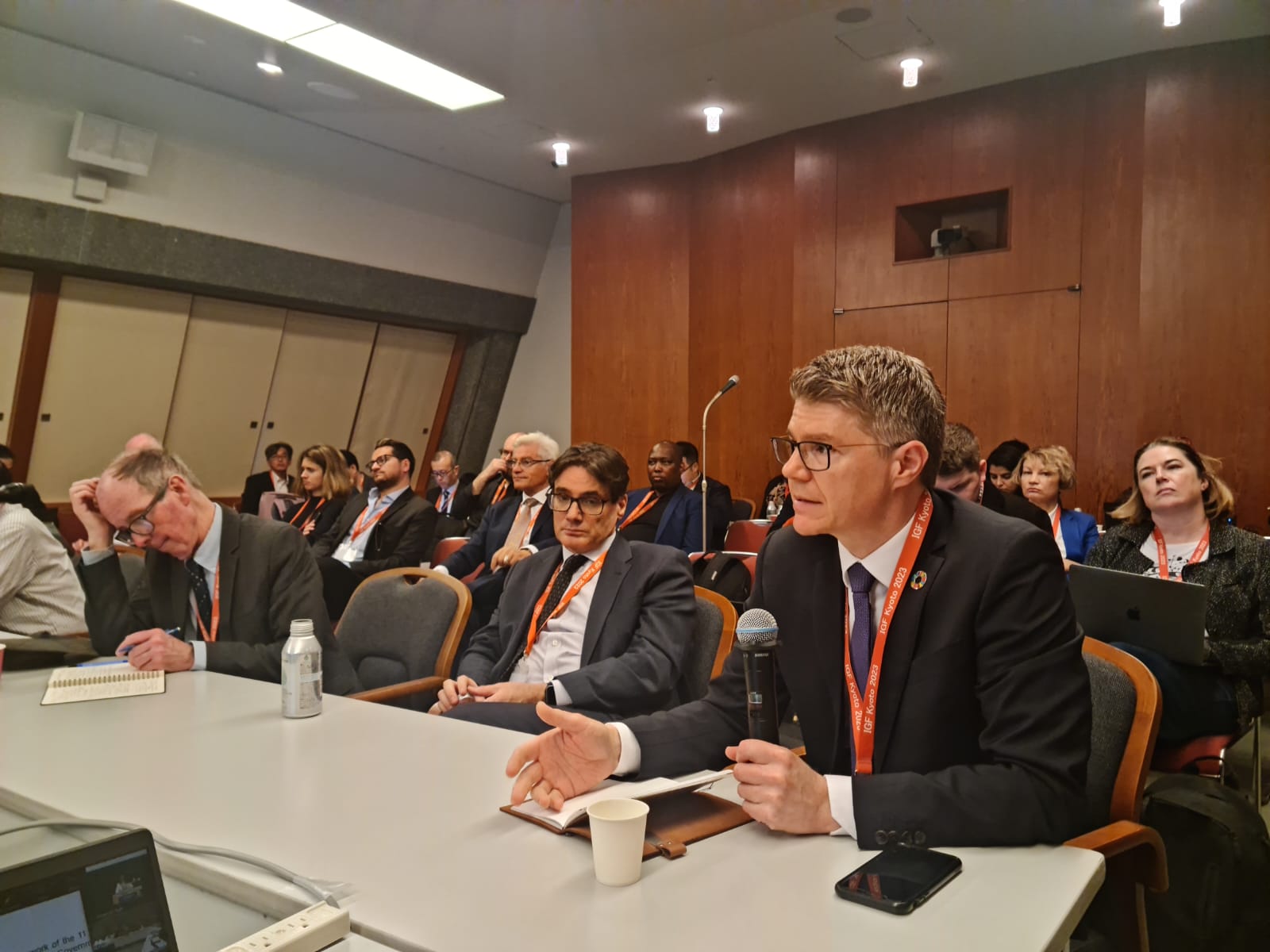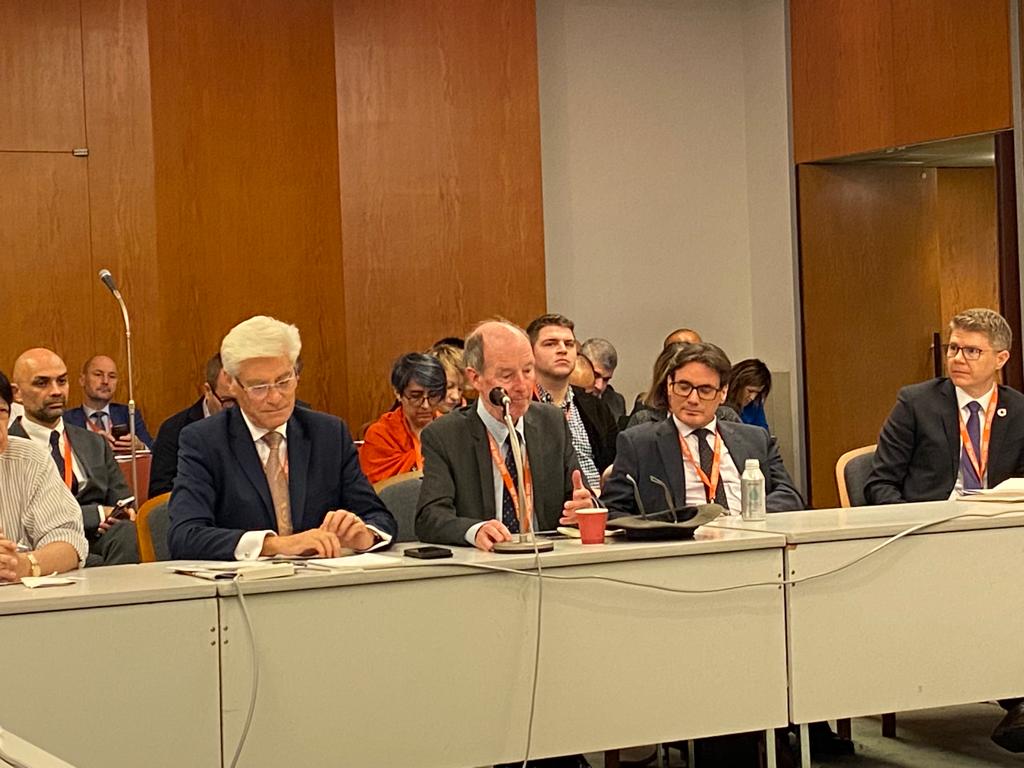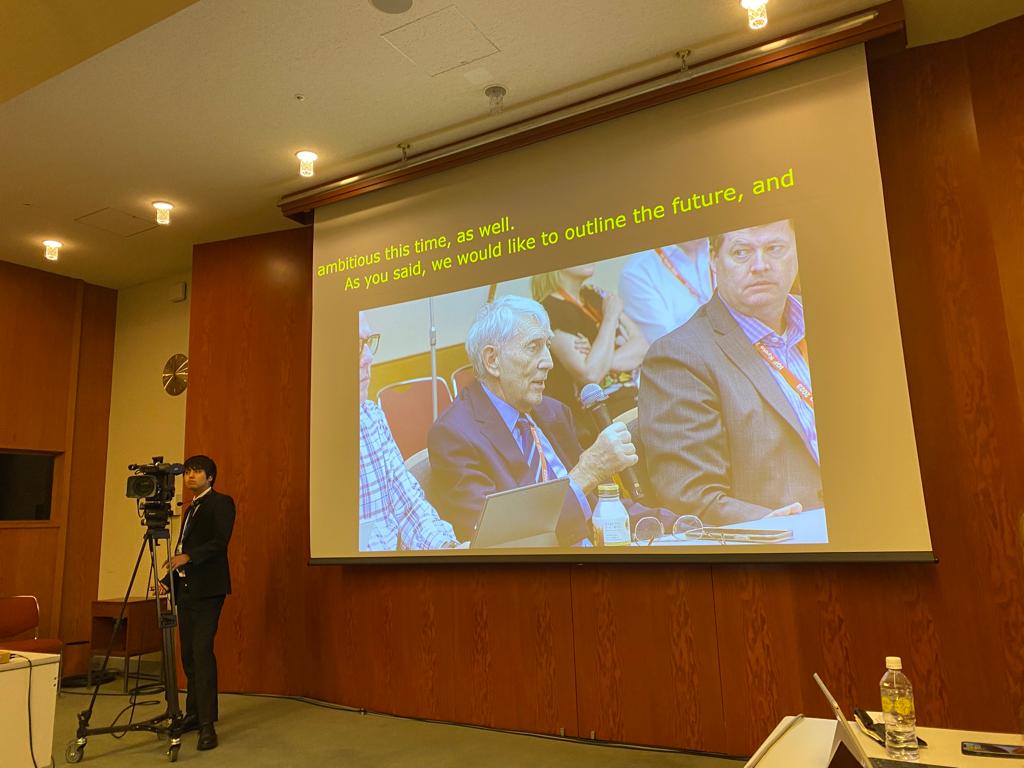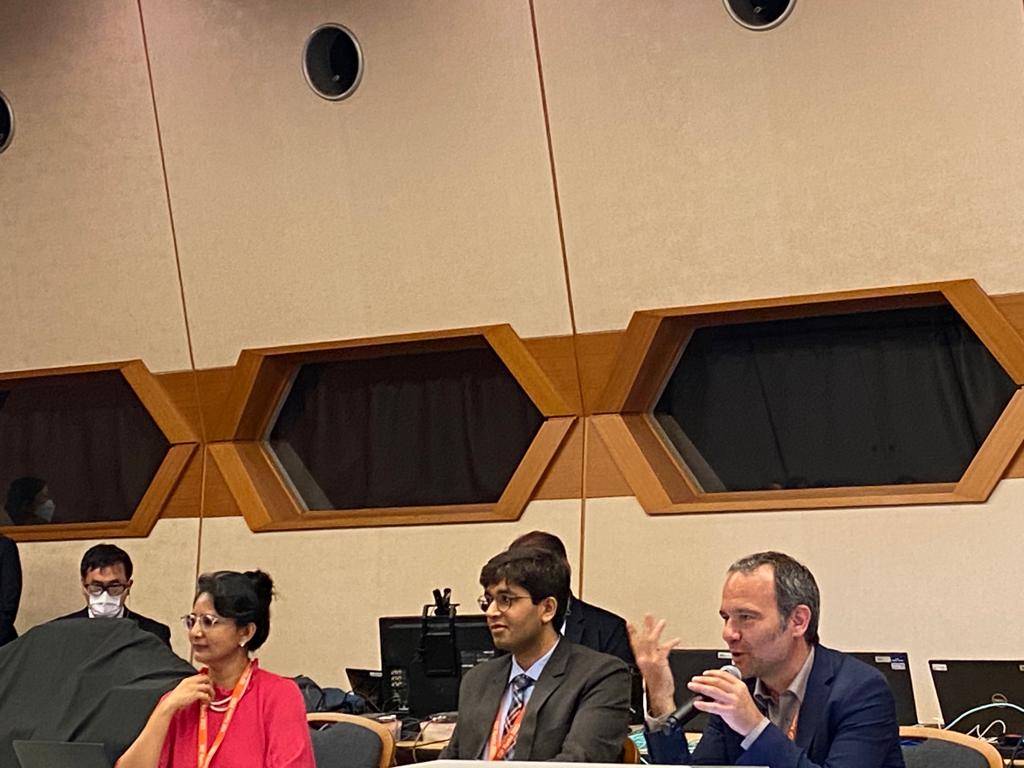First Meeting of the WSIS+20 Forum High-Level Event Open Consultation Process
WSIS
Session 105
This session is part of the Open Consultation Process and aims to provide updates on the preparations towards the upcoming WSIS+20 Forum High-Level Event and to invite all stakeholders to participate in an open discussion by sharing their ideas and plans. During the session, participants will have an opportunity to learn more about the ongoing implementation of the WSIS Process and its linkages with SDGs. Furthermore, the OCP will be presented, highlighting the new calls for action inviting stakeholders to share their views on the thematic aspects and innovations on the format of the forum, including hackathon, exhibition, various awards and contests, special tracks, and other related activities. The session will also discuss the WSIS Stocktaking process, also collecting input for the upcoming WSIS+20 review process.
The WSIS+20 Forum High-Level Event will provide an opportunity to serve as a platform to highlight the achievements of WSIS Action Lines in collaboration with the UN Agencies involved and to provide information and analyses of the implementation of WSIS Action Lines since 2005, towards 2025 and the second final review by UNGA.
More information: IGF session page
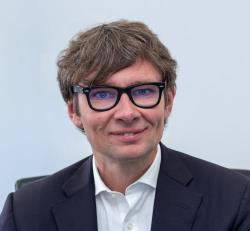
Tomas Lamanauskas took office as Deputy Secretary-General of the International Telecommunication Union (ITU) on 1 January 2023. In this key elected role, he assists the ITU Secretary-General with managing the organization, addressing the needs of ITU's unique, global public-private membership, and pursuing key strategic objectives to promote inclusive digital transformation in line with sustainable development.
Mr Lamanauskas aims to forge impact-driven partnerships to advance global connectivity, help the information and communication technology industry cut emissions and address the climate crisis, and implement results-oriented management, with maximum transparency and accountability, to ready ITU for a dynamic future. As Deputy Secretary-General, he fosters close collaboration across varied radiocommunication, standardization, and development activities, reinforcing the collective role of ITU's five elected officials as a single, highly effective team.
Prior to his election by ITU Member States in September 2022, Mr Lamanauskas held senior executive positions with national regulatory authorities in Europe, the Middle East, and the Caribbean, and as a senior government advisor on telecommunications issues in the Pacific region. He previously led corporate strategy at ITU and public policy for multinational technology and communications company VEON .
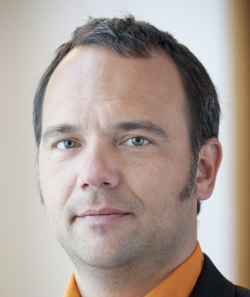
Ambassador Thomas Schneider is leading the Swiss delegation in various fora in the field of digital and internet
governance, including AI. In the past 20 years, he has been chairing several international committees and co-initiated several dialogue fora on national and international levels. He is currently the chair of the Council of Europe’s Committee on AI (CAI), mandated to negotiate a binding convention on AI. He has been a co-initiator of EuroDIG and is the president of
its Support Association, since 2012. He is a bureau member of the Council of Europe’s Steering Committee on Media
and Information Society (he was its chair in 2018-19 and vice-chair in 2020-21). He chaired several CDMSI expert groups.
He has also been a member of the bureau of the CoE’s Ad Hoc Committee on Artificial Intelligence in 2019-2021. From
2014-2017, he was the chair of ICANN’s Governmental Advisory Committee and in this role negotiated the compromise
among governments and with the other stakeholders regarding the “IANA Stewardship transition”, the biggest reform in the ICANN system. He was a vice-chair of the OECD’s Committee for Digital Economy Policy (2020-2022).
He was responsible for the organization of the 12th UN IGF in Geneva in 2017 co-chair of the IGF’s Multistakeholder Advisory Group in 2017. He participated in the meetings of the UN Secretary General’s High Level Panel on Digital Cooperation, as personal advisor of Swiss president Doris Leuthard (2018-2019). He has also been a co-initiator of the Swiss Internet Governance Forum, since 2013. Since 2003, he has been coordinating the Swiss activities with regard to the follow-up of the UN World Summit on the Information Society.
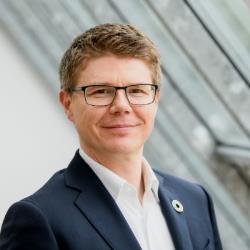
Robert Opp is currently the Chief Digital Officer of UNDP, the United Nations’ global sustainable development organization working across 170 countries globally with more than 17,000 staff. He leads the agency’s digital transformation, an organization-wide effort, to harness the power of new technology to improve the lives of those furthest behind.
Prior to this role, Robert served as Director of the Innovation and Change Management Division within the United Nations World Food Programme (WFP) where he established an in-house ‘Zero Hunger’ innovation accelerator and created an award-winning crowdfunding smartphone app, ShareTheMeal which has raised over US$40 million for hunger programmes.
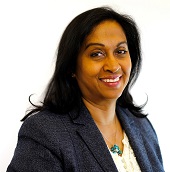
Shamika N. Sirimanne is the Director of the Division on Technology and Logistics of UNCTAD. She leads UNCTAD's trade logistics programme, including the work on trade facilitation, maritime transport, port management, and e-commerce and the digital economy. She also supervises UNCTAD’s largest technical cooperation programme, ASYCUDA—the Automated System for Customs.
Ms. Sirimanne has extensive experience in development policy, research and technical cooperation gained from international organizations, national governments, think tanks and universities. Prior to UNCTAD, she served as the Director of the ICT and Disaster Risk Reduction Division of the UN Economic and Social Commission for Asia and the Pacific (ESCAP), where she spearheaded major regional cooperation programmes such as the Asia-Pacific Information Superhighway initiative, and Regional Drought Monitoring Mechanism.
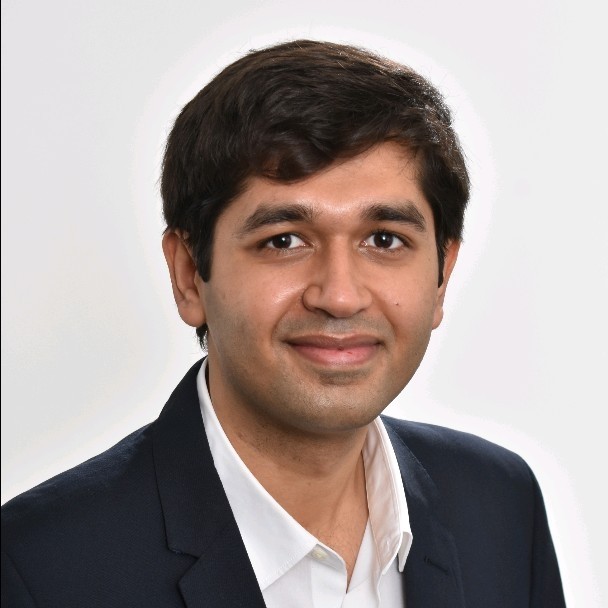.jpeg?maxwidth=250)
Prateek Sibal is a Programme Specialist at the Digital Policies and Digital Transformation Section of the Communication and Information Sector at UNESCO. In this framework, he coordinates the Sector’s work on artificial intelligence and digital transformation with a focus on the judiciary and policymakers. His work spans research, advocacy, policy advice and capacity building for the governance of digital technologies. He teaches digital governance at Sciences Po, Paris.
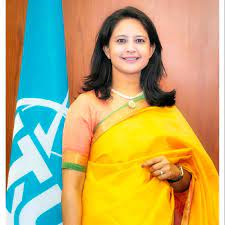
Gitanjali Sah is Strategy and Policy Coordinator at the International Telecommunication Union (ITU) and is responsible for the World Summit on the Information Society (WSIS) process. She has more than 15 years of work experience in ICT policy issues at the national, regional and international level. She is an experienced International Civil Servant having worked at several UN Agencies. She holds M.Phil. Development Studies, University of Cambridge, UK and a Masters in Political Science, Jawaharlal Nehru University (JNU), New Delhi, India.
-
 C1. The role of governments and all stakeholders in the promotion of ICTs for development
C1. The role of governments and all stakeholders in the promotion of ICTs for development
-
 C2. Information and communication infrastructure
C2. Information and communication infrastructure
-
 C3. Access to information and knowledge
C3. Access to information and knowledge
-
 C4. Capacity building
C4. Capacity building
-
 C5. Building confidence and security in use of ICTs
C5. Building confidence and security in use of ICTs
-
 C6. Enabling environment
C6. Enabling environment
-
 C7. ICT applications: benefits in all aspects of life — E-government
C7. ICT applications: benefits in all aspects of life — E-government
-
 C7. ICT applications: benefits in all aspects of life — E-business
C7. ICT applications: benefits in all aspects of life — E-business
-
 C7. ICT applications: benefits in all aspects of life — E-learning
C7. ICT applications: benefits in all aspects of life — E-learning
-
 C7. ICT applications: benefits in all aspects of life — E-health
C7. ICT applications: benefits in all aspects of life — E-health
-
 C7. ICT applications: benefits in all aspects of life — E-employment
C7. ICT applications: benefits in all aspects of life — E-employment
-
 C7. ICT applications: benefits in all aspects of life — E-environment
C7. ICT applications: benefits in all aspects of life — E-environment
-
 C7. ICT applications: benefits in all aspects of life — E-agriculture
C7. ICT applications: benefits in all aspects of life — E-agriculture
-
 C7. ICT applications: benefits in all aspects of life — E-science
C7. ICT applications: benefits in all aspects of life — E-science
-
 C8. Cultural diversity and identity, linguistic diversity and local content
C8. Cultural diversity and identity, linguistic diversity and local content
-
 C9. Media
C9. Media
-
 C10. Ethical dimensions of the Information Society
C10. Ethical dimensions of the Information Society
-
 C11. International and regional cooperation
C11. International and regional cooperation
-
 Goal 1: End poverty in all its forms everywhere
Goal 1: End poverty in all its forms everywhere
-
 Goal 2: End hunger, achieve food security and improved nutrition and promote sustainable agriculture
Goal 2: End hunger, achieve food security and improved nutrition and promote sustainable agriculture
-
 Goal 3: Ensure healthy lives and promote well-being for all
Goal 3: Ensure healthy lives and promote well-being for all
-
 Goal 4: Ensure inclusive and equitable quality education and promote lifelong learning opportunities for all
Goal 4: Ensure inclusive and equitable quality education and promote lifelong learning opportunities for all
-
 Goal 5: Achieve gender equality and empower all women and girls
Goal 5: Achieve gender equality and empower all women and girls
-
 Goal 6: Ensure access to water and sanitation for all
Goal 6: Ensure access to water and sanitation for all
-
 Goal 7: Ensure access to affordable, reliable, sustainable and modern energy for all
Goal 7: Ensure access to affordable, reliable, sustainable and modern energy for all
-
 Goal 8: Promote inclusive and sustainable economic growth, employment and decent work for all
Goal 8: Promote inclusive and sustainable economic growth, employment and decent work for all
-
 Goal 9: Build resilient infrastructure, promote sustainable industrialization and foster innovation
Goal 9: Build resilient infrastructure, promote sustainable industrialization and foster innovation
-
 Goal 10: Reduce inequality within and among countries
Goal 10: Reduce inequality within and among countries
-
 Goal 11: Make cities inclusive, safe, resilient and sustainable
Goal 11: Make cities inclusive, safe, resilient and sustainable
-
 Goal 12: Ensure sustainable consumption and production patterns
Goal 12: Ensure sustainable consumption and production patterns
-
 Goal 13: Take urgent action to combat climate change and its impacts
Goal 13: Take urgent action to combat climate change and its impacts
-
 Goal 14: Conserve and sustainably use the oceans, seas and marine resources
Goal 14: Conserve and sustainably use the oceans, seas and marine resources
-
 Goal 15: Sustainably manage forests, combat desertification, halt and reverse land degradation, halt biodiversity loss
Goal 15: Sustainably manage forests, combat desertification, halt and reverse land degradation, halt biodiversity loss
-
 Goal 16: Promote just, peaceful and inclusive societies
Goal 16: Promote just, peaceful and inclusive societies
-
 Goal 17: Revitalize the global partnership for sustainable development
Goal 17: Revitalize the global partnership for sustainable development
